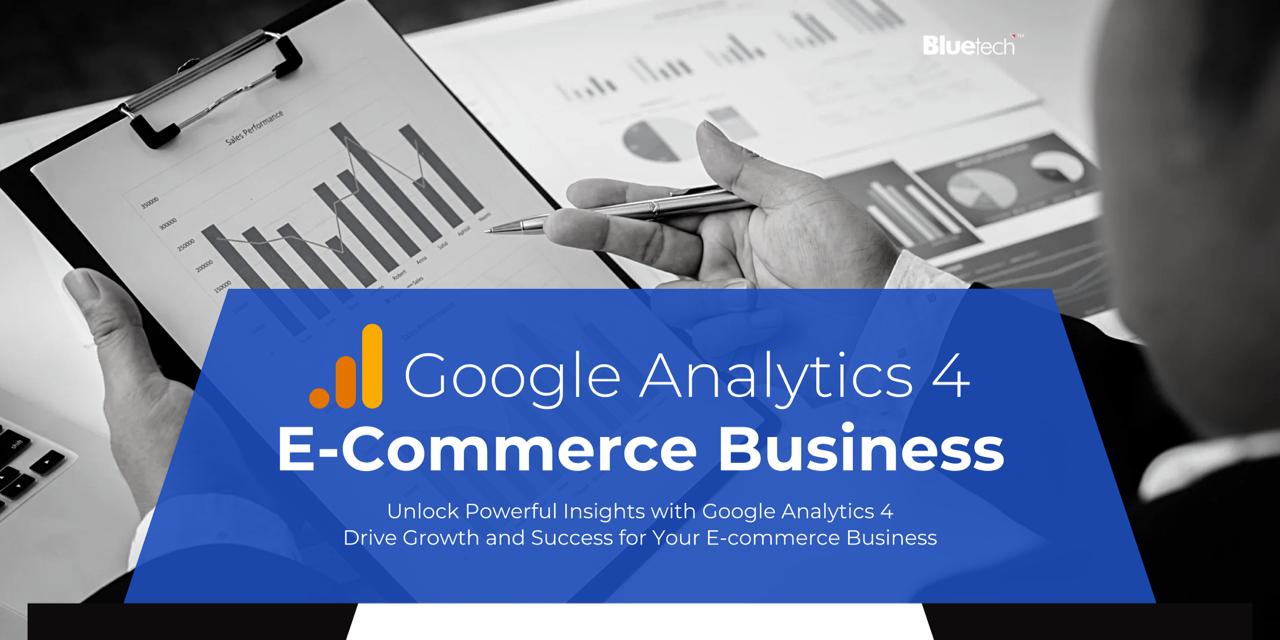Google Analytics 4: What E-commerce Businesses Need to Know
In today's data-driven world, understanding customer behavior is essential for business growth, particularly in e-commerce. Data provides valuable insights into user actions, preferences, and sales patterns, making it indispensable for online retailers. One of the most important tools for tracking, analyzing, and interpreting this data is Google Analytics 4 (GA4). In this article, we will explore what GA4 is, how it functions, and why e-commerce businesses should leverage its capabilities. We will also highlight the key reports every online store owner should monitor to maximize performance.
What is Google Analytics, and Why Is It Used?
Google Analytics is a free web analytics tool that provides valuable information about website visitors, their actions, and their engagement with a website. Businesses use it to monitor various types of data, ranging from basic page views to complex e-commerce transactions. With GA4, the latest version of Google Analytics, businesses can access a more powerful platform that focuses on the user, tracking interactions across websites and mobile apps in a unified manner.
Implementing Google Analytics 4 setup is crucial for e-commerce businesses, so it's important to collaborate with a Shopify Expert to fully utilize GA4's insights and features.
Why Use Google Analytics?
-
Monitor User Activities: Understand how users interact with your website or app, including the pages they visit and where they exit.
-
Measure Campaign Success: Evaluate the effectiveness of marketing campaigns across various channels, including Google Ads, social media, and email marketing.
- Improve Conversion Rates: Identify weak points in the user journey and optimize the path to purchase, improving overall conversions.
How is Google Analytics 4 Useful for E-commerce?
In e-commerce, every click, page view, and action translates into monetary value. Understanding which marketing tactics lead to conversions and identifying where potential customers abandon the process is crucial. GA4 offers specialized features to cater to e-commerce businesses, providing comprehensive insights into customer behavior and product performance.
Why Should E-commerce Businesses Use GA4?
- Advanced Tracking Across Platforms: GA4 allows businesses to track interactions across both websites and mobile apps, delivering a complete view of user behavior.
-
Enhanced Event Tracking: Unlike previous versions, GA4 focuses on event-based tracking, capturing every interaction, from button clicks to form submissions.
-
E-commerce Integration: GA4 offers e-commerce tracking features that record product views, add-to-cart actions, transactions, and refunds.
- Improved Customer Journey Insights: With GA4’s user-centric design, businesses can track users across multiple sessions, devices, and touchpoints.
To ensure proper integration of Google Analytics 4 setup into Shopify stores, hiring a Shopify Expert guarantees seamless tracking and optimized e-commerce performance.
The Advantages of Google Analytics 4 for E-commerce Businesses
-
Real-time Data: GA4 provides real-time tracking, enabling e-commerce stores to make informed decisions based on current user actions and traffic trends.
-
Predictive Metrics: GA4’s machine learning can predict future outcomes, such as potential revenue from active users or the likelihood of users making a purchase.
-
Cross-device Tracking: GA4 seamlessly tracks customer interactions across multiple devices, offering businesses a better understanding of customer behavior.
- Integration with Google Ads: GA4 gives e-commerce businesses deeper integration with Google Ads, improving their ability to retarget users and optimize campaigns.
Top 10 Google Analytics Reports Every Online Store Owner Should Monitor
To maximize the benefits of GA4, it’s essential to track specific reports that can enhance performance and keep businesses ahead of trends. Here are the top 10 GA4 reports every online store owner should monitor:
-
Real-Time Report: Provides live data on user activities, such as active users, the pages they are visiting, and their interactions.
-
User Acquisition Report: Shows the source of your visitors, such as direct traffic, social media, or paid ads, helping determine which channels drive the most traffic.
-
User Engagement Report: Offers insights on how long users stay on your site, how many pages they view, and how often they return.
-
Conversion Paths Report: Crucial for e-commerce, this report outlines the entire journey users take before making a purchase.
-
E-commerce Purchases Report: Displays product performance, revenue, and transactions, helping to identify top-selling items.
-
Customer Lifetime Value (CLV) Report: Shows the long-term value of your customers, helping guide targeted marketing efforts.
-
Retention Report: Measures your ability to retain customers over time, crucial for increasing revenue from returning buyers.
-
Product Performance Report: Tracks which products receive the most views, are added to carts, or removed from carts, helping with inventory and pricing strategies.
-
Cart Abandonment Report: Identifies points in the checkout process where customers abandon their carts, helping to reduce friction.
- Purchase Behavior Report: Analyzes what led users to convert and the value of their purchases.
Why Monitoring These Reports is Important for E-commerce
Tracking these reports helps e-commerce businesses:
-
Reorganize Sales Funnels: Identify where users drop off and streamline the purchasing process to reduce friction.
-
Maximize Income: Gain insights into the products and promotions driving the highest sales.
-
Enhance User Experience: Tailor the shopping journey to increase customer satisfaction and loyalty.
- Drive Data-Backed Decisions: Ensure that business decisions are based on data, improving ROI on marketing and website investments.
Conclusion
Analyzing customer actions, such as what leads to conversions and the value of their purchases, is critical for e-commerce success. Google Analytics 4 offers a wealth of advantages for online businesses, including advanced tracking, deep insights, and predictive analytics. By monitoring the right data and understanding customer behavior, businesses can improve performance, increase conversions, and make data-driven decisions for long-term growth.
For a complete and accurate Google Analytics 4 setup, seeking assistance from a Shopify Expert is highly recommended. This ensures your online store is set up for long-term success, allowing you to fully leverage GA4’s capabilities.







